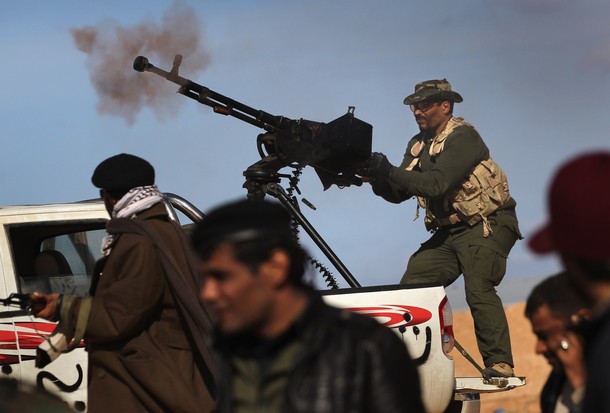
From the Editors of the New York Times: The Obama administration is throwing out so many conflicting messages on Libya that they are blunting any potential pressure on the Libyan regime and weakening American credibility. It’s dangerous to make threats if you’re not prepared to follow through. …
Even with overwhelming air superiority, preventing Libyan warplanes from flying would entail some risk for American and NATO pilots. And what happens if Colonel Qaddafi holds on? Will the United States and its allies continue to patrol the skies?
When the United States, Britain and France imposed an air cap over Iraq after the 1991 gulf war, they grounded airplanes and helicopters and stopped the massacres of Kurds in the north and Shiites in the south. It went on for 12 years. …
NATO is consulting all week on Libya, with defense ministers planning to meet in Brussels on Thursday. Turkey and some other allies are balking at a no-flight zone. …
There is more that the United States and its allies can do right now. NATO has expanded its air surveillance over Libya from 10 hours to 24 hours a day to gather information on Libyan troop movements. It should find a way to share relevant information with the rebels. Without firing a shot, it can sow confusion among Libyan forces by jamming their communications. All of the big states need to agree on ways to enforce the United Nations-imposed arms embargo.
The United States and its partners have taken important steps to pressure Colonel Qaddafi and his cronies to cede power, including an assets freeze and a travel ban. We doubt that Colonel Qaddafi will ever get the message. But with enough pressure, his cronies and his military might abandon him — to save their own skins. (photo: Getty)
Image: getty%203%209%2011%20Libyan%20rebels.jpg
